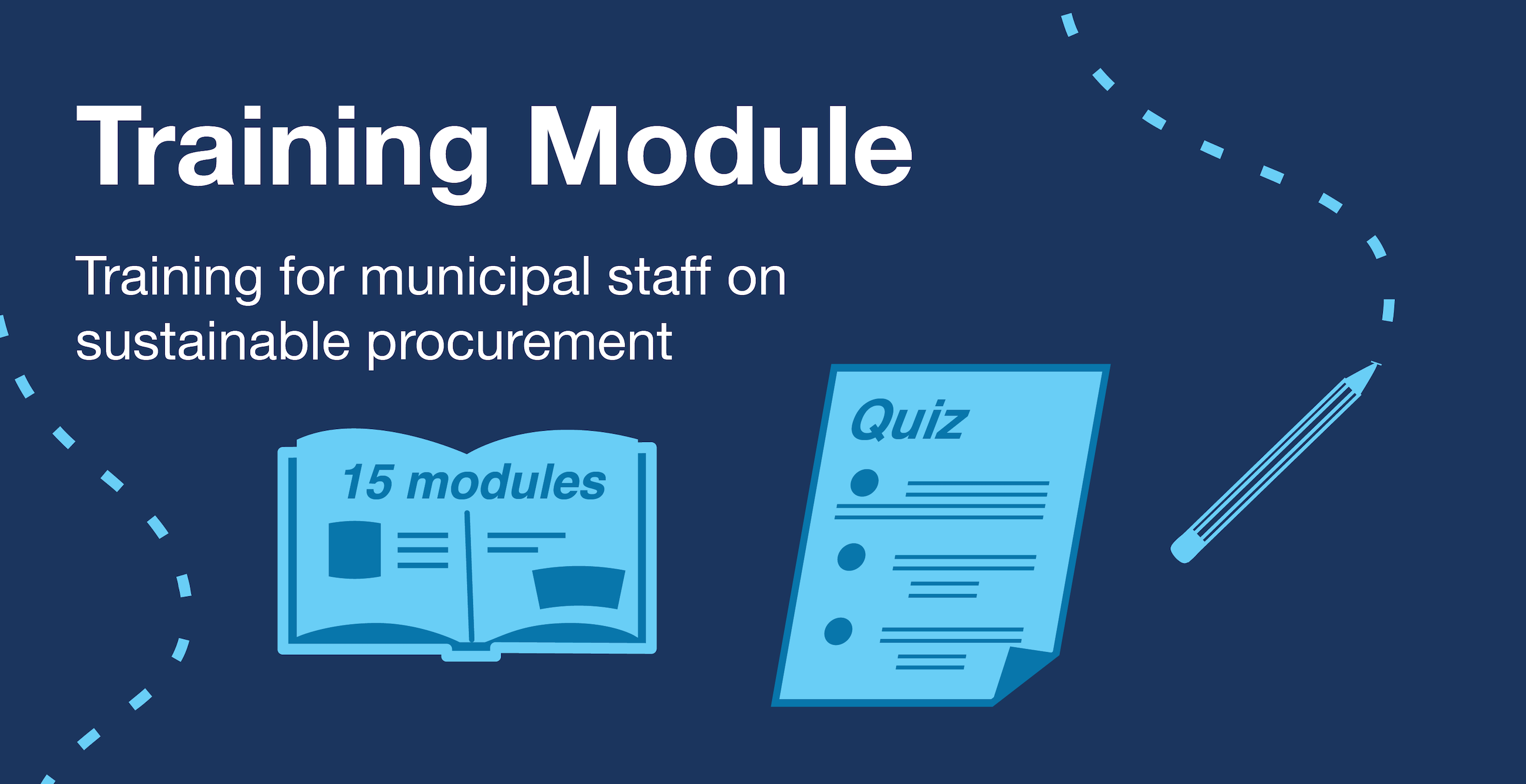Audience: Procurement Professionals, Sustainability Professionals, Environmental Advocates
Building organizational capacity for lasting change
Staff training and public reporting represent two key elements necessary for ensuring that the change we’ve worked hard to create lasts for the long term. Staff training is critical for building organizational capacity over time and expanding implementation more broadly. Public reporting is important for supporting transparency and accountability.
STEP 4 RESOURCES
Webinar-based Training About Sustainable Procurement
A number of organizations offer excellent webinar-based training on developing and implementing sustainable procurement policies. Visit these organizations' websites for their webinars. Some organizations offer webinars at no cost to the public, while others provide an even wider selection to their members.
Responsible Purchasing Network Webinars
Sustainable Purchasing Leadership Council Webinars
NASPO Green Purchasing Webinar YouTube Channel
Measuring Impact
A critical feature of any sound sustainable procurement policy is having a plan to evaluate cost and impact. Below you will find key resources to help you create a plan to evaluate your policy and examples that other municipalities or states are using to measure the impact of their sustainable procurement policies.
Webinar: NASPO Calculating the Value of Buying Green
Cost Savings
In November 2020, Ecology Center, Safer States, and Healthy Babies Bright Futures hosted a webinar about implementing sustainable procurement policies and protecting employee health with safer, green cleaning products in a cost-effective way. Panelists from Ecology Center, adapt.city, the State of Maryland, and Oregon Metro were featured speakers on various aspects of the topic. The panelists' slides and related resources can be found in this Google Drive folder.
Model Evaluation Examples
The states of Minnesota, Massachusetts, and Maryland all have model initiatives to evaluate the impact of their sustainable procurement policies.
Minnesota created an Office of Enterprise Sustainability to help departments across the state evaluate the environmental impact of their programs, including but not limited to procurement. This holistic approach puts the state's EPP in context with other sustainability programs.
Learn more about Minnesota's Office of Enterprise Sustainability
Massachusetts evaluates the impact of its EPP on an annual basis and publically reports on its progress on its website. In addition to a general focus on their EPP, they have also created a Toxics Reduction Task Force to dive into how procurement can reduce the state's use of products containing toxic chemicals.
Learn more about Massachusetts EPP progress reports and Toxics Reduction Task Force
Maryland's Green Purchasing Committee publishes an annual Green Purchasing Report to summarize the state's EPP activities. Progress, acheivements, and priorites are all documented in this document. The report includes a summary of green purchasing, contracts, quantified benefits, activities, and goals.



